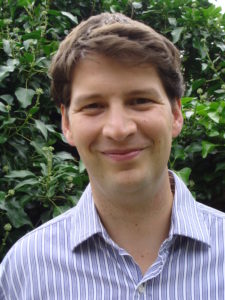Today we are pleased to present another from the December Special Issue Section: The haunted heart and the Holy Ghost: on retrieval, donation and death, by Joshua Hordern.
In his summary of the work, Joshua writes:
What is haunting about our hearts? Some people who receive transplanted hearts report a strange feeling of connection to the donors who have given their hearts away. And what about the parents of the Alder Hey children who had their hearts stolen by rogue scientists? Why were they so misunderstood by those who should have cared for them? The article pursues some cultural archaeology to try to locate why we talk and care about the heart as we do. It does so by taking a look at ancient Hebrew sources so influential on the development on many different civilisations. There we see the way that hearts are thought about as the seat of human identity – of thought, feelings and action. Hearts are not just symbols for such identity – but the physical heart itself is in some ways thought as the identity of a person. There we also find how just the heart is thought of a needing a transplant – the promise of a new heart and a new spirit. Following this trail, the argument turns to think about how two or more hearts come together as one – what I call ‘intercordiality’ – and why this phenomenon matters. The haunting of the heart – our sense of interconnection with others in our hearts – recalls what Christian thought has talked about in terms of the Holy Spiri who is said to unite the hearts of many in loving pilgrimage through life. What practical difference does any of this make to donation and death? It puts the question of organ transplant in a new light. On one view, it is only at and after the moment of death when an organ may be retrieved, thereby uniting one heart to another’s life? But new arguments, which cut across the heart of medical professionalism, are now being advanced whereby people who are known not to be dead should be permitted to consent to have their heart’s removed. All that we have learnt about the heart should lead us to reject the idea that such a practice constitutes civilisational progress.
 bio
bio
Joshua Hordern is Associate Professor of Christian Ethics in the Faculty of Theology and Religion at the University of Oxford and a Fellow of Harris Manchester College. He has worked extensively in healthcare with particular focus on compassion in healthcare, medical professionalism and precision medicine. He leads the Oxford Healthcare Values Partnership (www.healthcarevalues.ox.ac.uk).
Sole-authored publications include Political Affections: Civic Participation and Moral Theology (OUP, 2013) and Compassion in Healthcare: Pilgrimage, Policy and Civic Life (OUP, 2020). Coedited collections include Personalised Medicine: The Promise, The Hype and the Pitfalls (The New Bioethics 2017), Marketisation, Ethics and Healthcare: Policy, Practice and Moral Formation (Routledge 2018), Concepts of Disease: Dysfunction, Responsibility and Sin (Theology, 2018) and The Politics of Diakonia (Political Theology 2019).
Before Oxford, he was a Research Fellow at Wolfson College, Cambridge, Associate Director of the Kirby Laing Institute for Christian Ethics and a local authority councillor in Bury St Edmunds. He read classics as an undergraduate and a Masters in Christian Ethics in Oxford before his doctorate in Christian Ethics in Edinburgh.
(Visited 376 times, 1 visits today)
 bio
bio